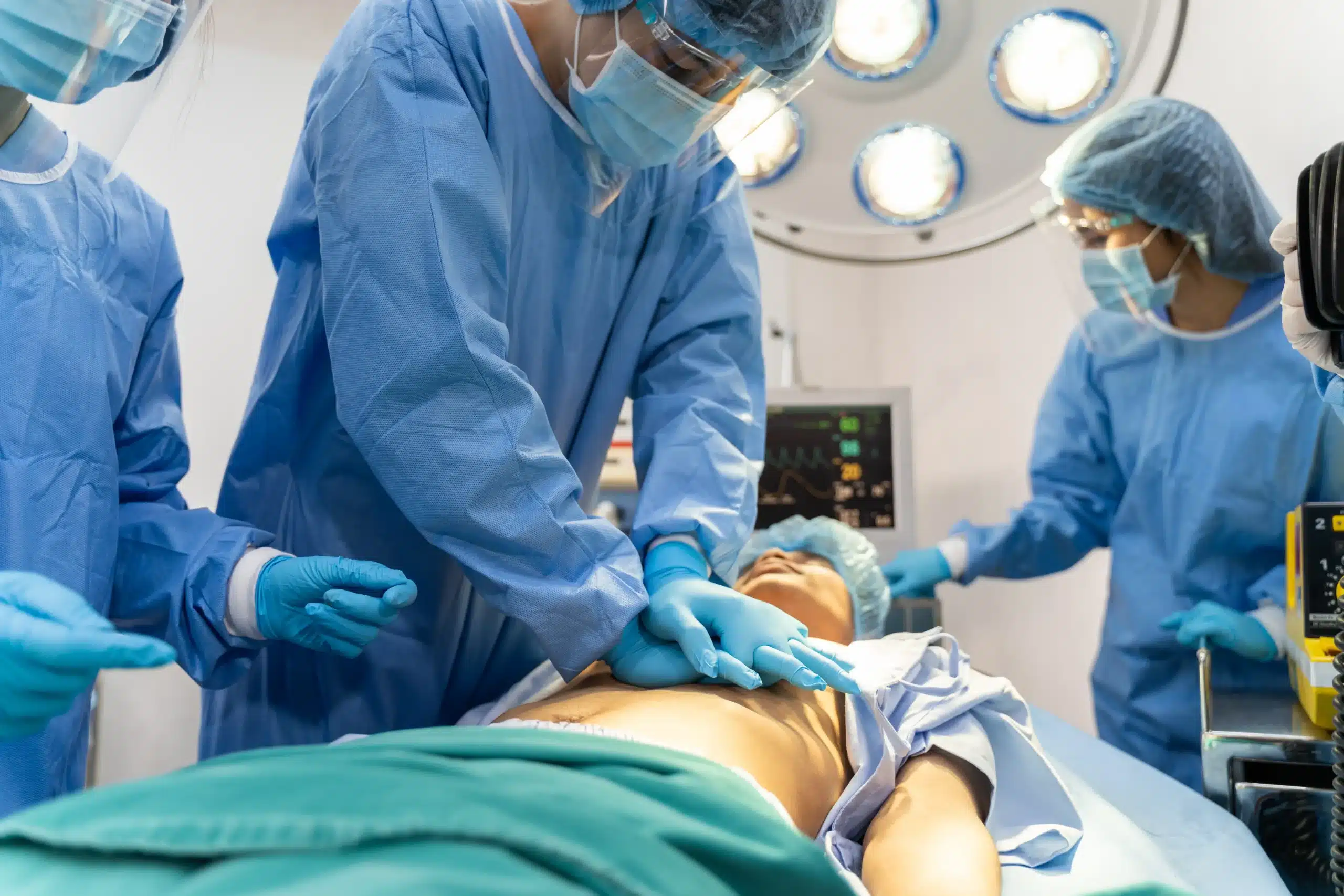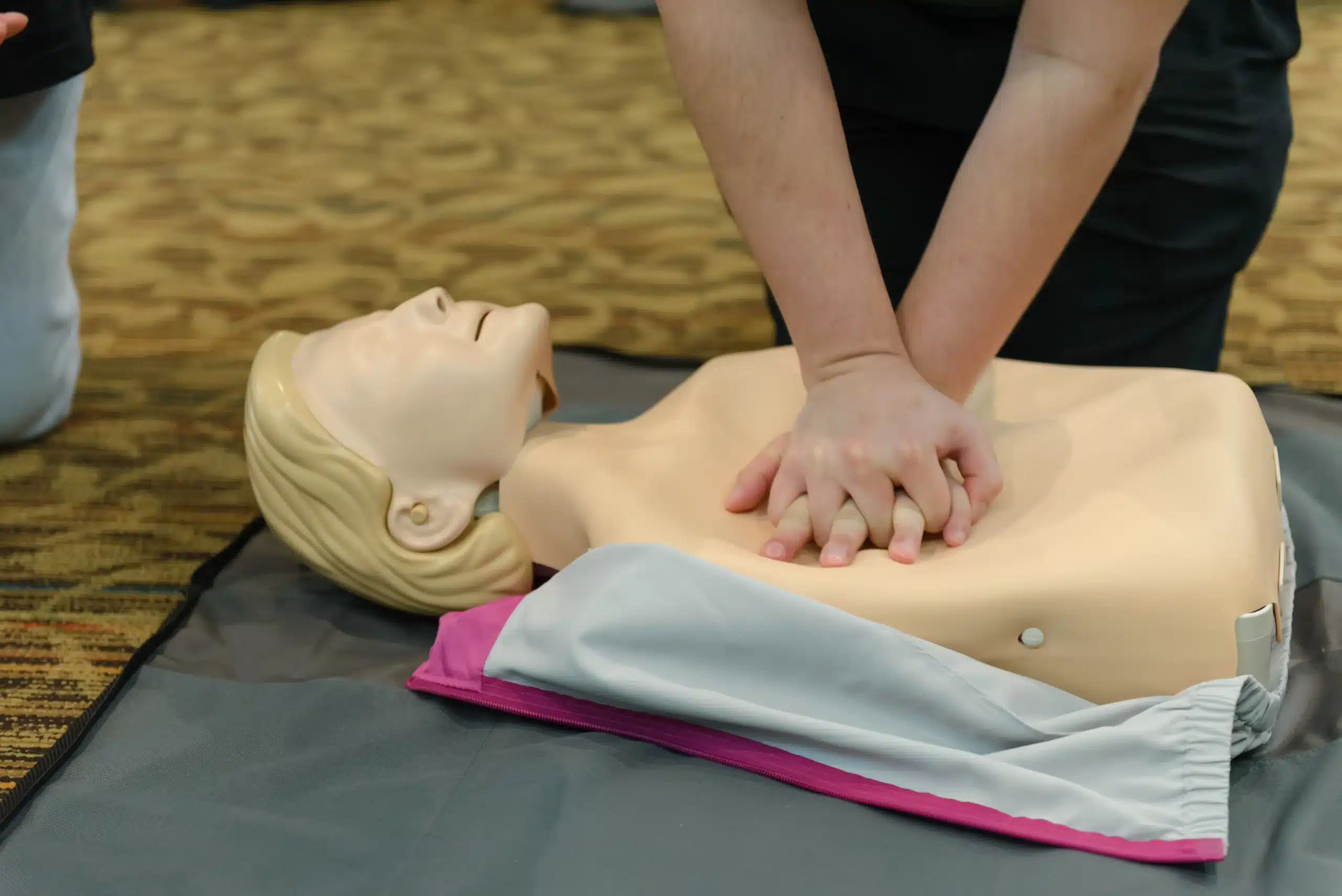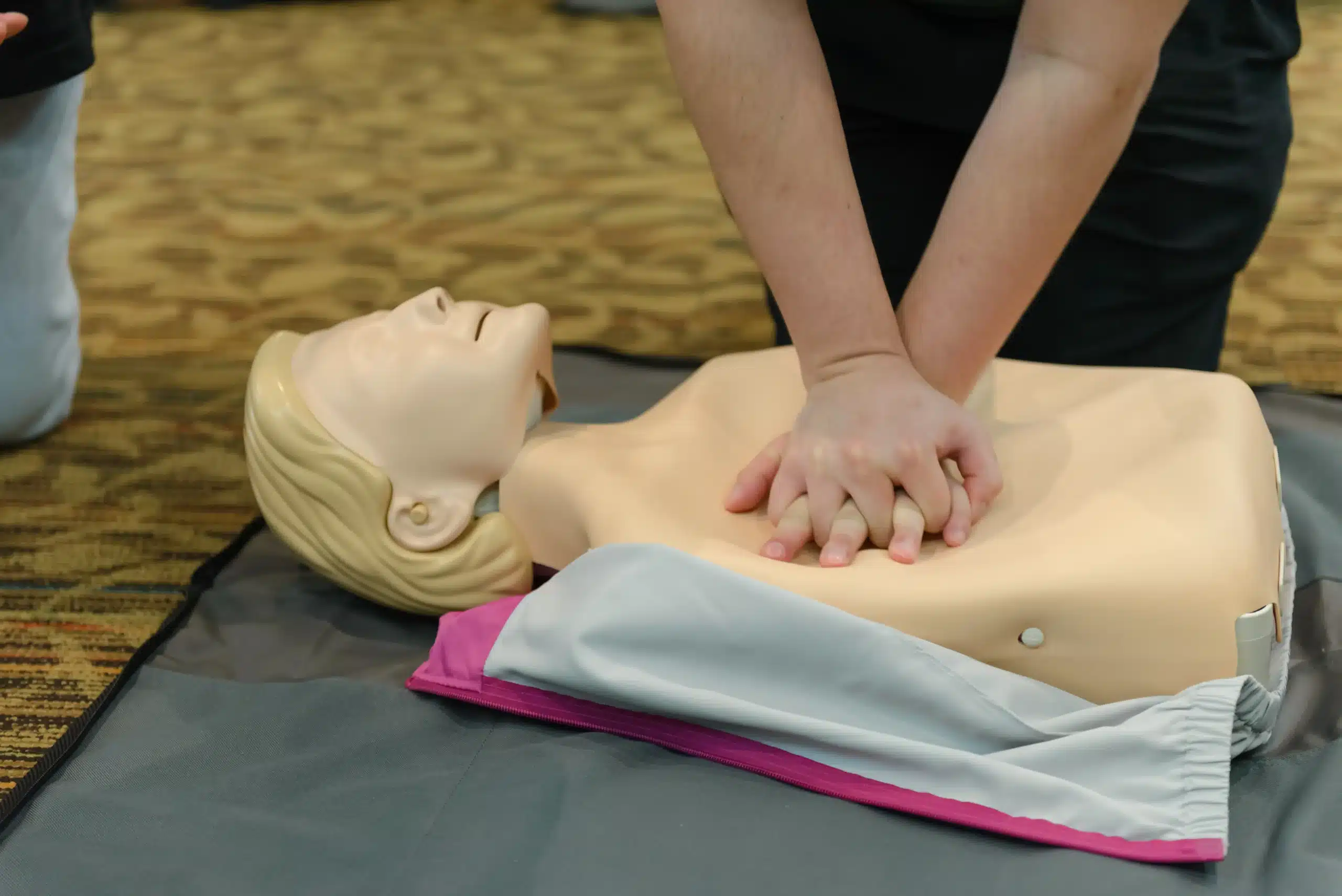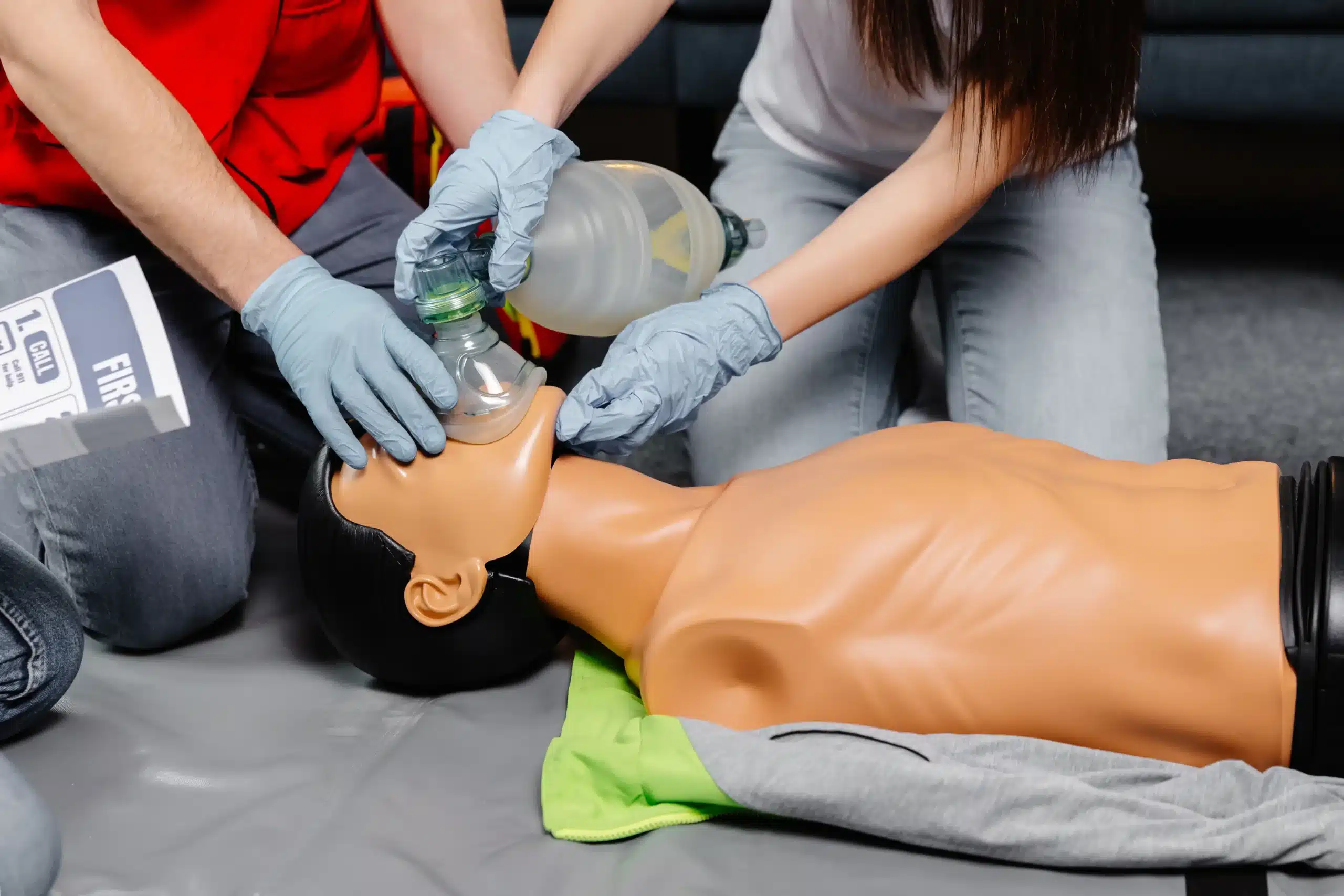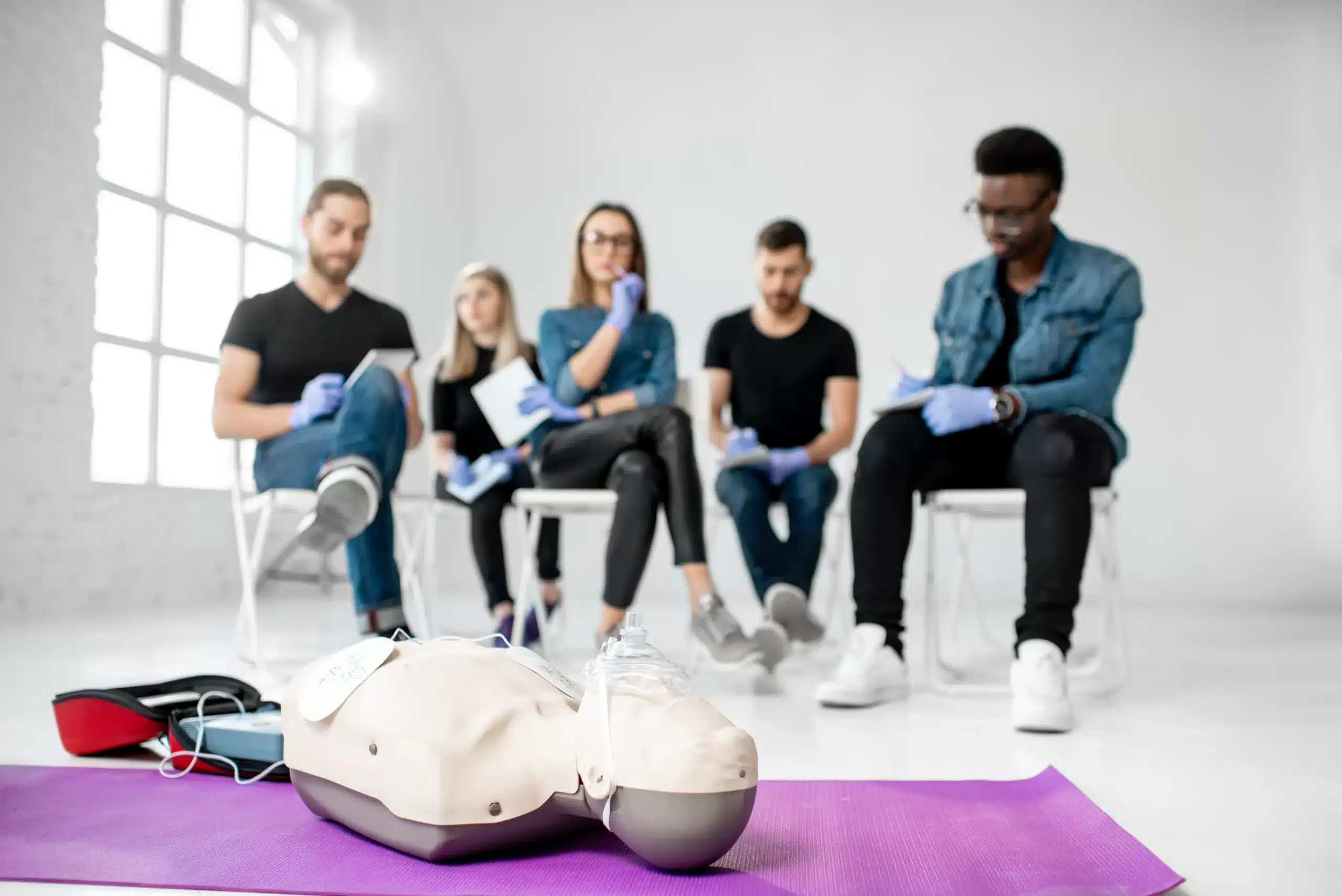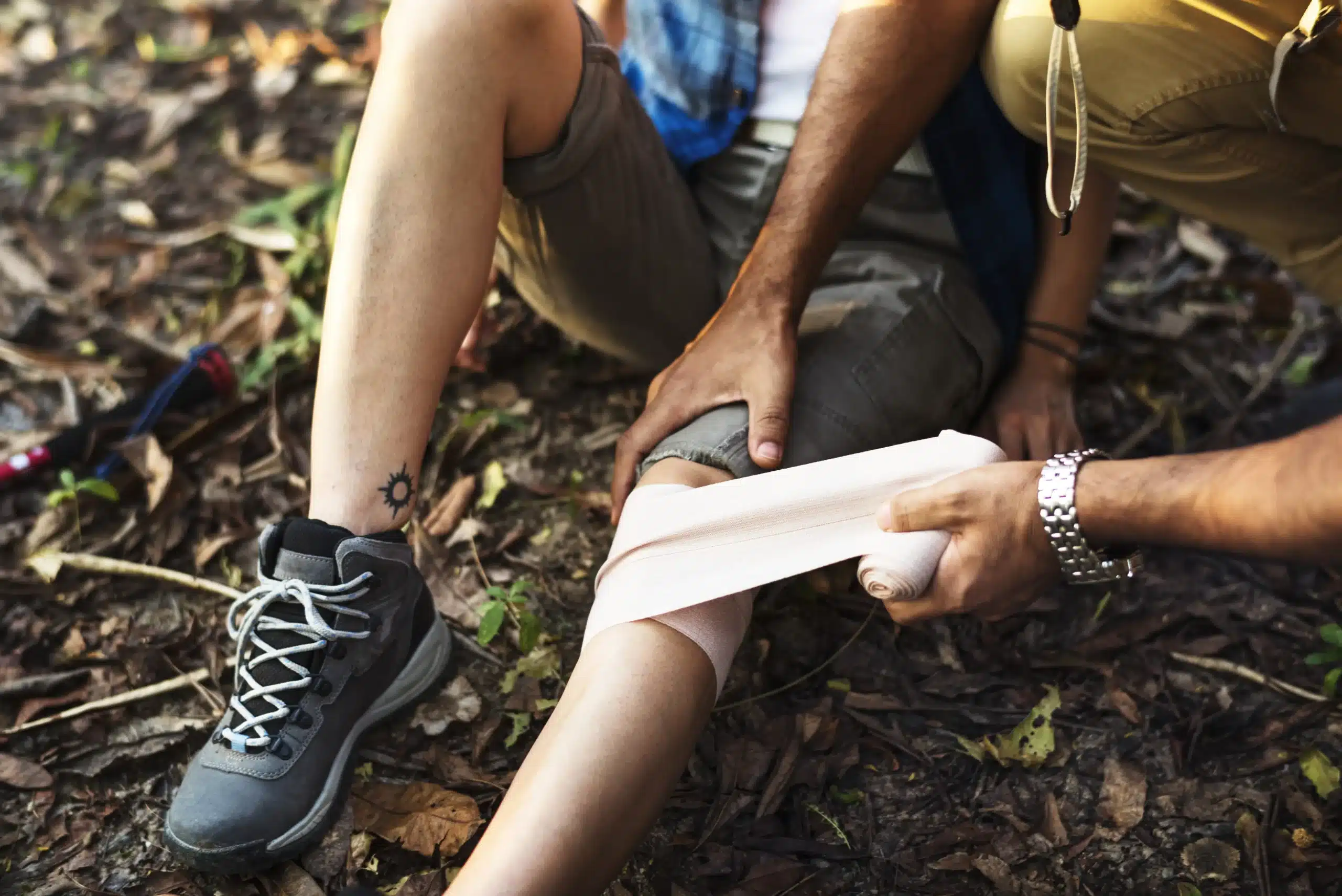Life is unpredictable, and knowing how to respond to a medical emergency can be truly life-saving. BLS certification empowers you with the skills and confidence to provide immediate care when it matters most. This guide simplifies the process of obtaining BLS certification in San Francisco. We’ll cover the essential components of BLS training, explore different course formats, and discuss the costs involved. Plus, we’ll provide a list of reputable training providers in San Francisco to help you find the perfect fit. Whether you’re a healthcare professional or simply want to be prepared, this article will equip you with the knowledge you need to get BLS certified in San Francisco.
Key Takeaways
- BLS certification empowers you to act in medical emergencies: Beyond CPR, it covers AED use and choking relief, giving you the confidence to provide crucial aid when it matters most.
- Finding the right BLS course in San Francisco is straightforward: Explore various providers, including Safety Training Seminars, the American Red Cross, and others, to find a course that aligns with your schedule, learning style, and budget. Consider in-person, blended, and online options.
- Staying current with your BLS certification is vital: Remember that certification typically lasts two years. Plan ahead and schedule your renewal course to maintain your skills and preparedness.
What is BLS Certification & Why Do You Need It?
Basic Life Support (BLS) certification gives you the skills to save a life. It goes beyond just CPR—you’ll learn how to use an AED and how to help someone who is choking. These skills give you the confidence to respond effectively in medical emergencies. Holding a BLS certification shows you’ve received the proper training and can provide critical care when it matters most.
What Does BLS Training Cover?
BLS certification programs cover essential life-saving techniques. You’ll learn single- and multiple-responder CPR (cardiopulmonary resuscitation) and how to use an AED (automated external defibrillator). The training also includes how to help someone with an obstructed airway (choking). These skills are crucial for handling various medical emergencies, from cardiac arrest to respiratory distress.
Who Needs BLS Certification in San Francisco?
BLS certification is essential for healthcare providers in San Francisco, such as doctors and nurses, and other professionals who might encounter medical emergencies at work. This includes people working in hospitals, clinics, and other healthcare settings. It’s also highly recommended for those in public safety roles, like firefighters, police officers, and lifeguards. Additionally, people enrolled in healthcare and public safety career training programs often need BLS training. Safety Training Seminars offers AHA-certified BLS courses throughout the Bay Area, making it convenient to get certified in San Francisco.
Best BLS Certification Providers in San Francisco
Finding the right BLS certification course can feel overwhelming, so we’ve compiled a list of reputable providers in San Francisco to help you get started. Whether you’re a healthcare professional, a student, or someone who wants to be prepared for emergencies, there’s a course out there for you.
Safety Training Seminars
Safety Training Seminars offers American Heart Association (AHA) certified courses in CPR, BLS, ACLS, PALS, and First Aid. With classes offered daily across over 60 locations in Northern California, they make it easy to find a course that fits your schedule. They serve San Francisco, Daly City, San Mateo, and Oakland, and are known for their excellent customer service and a low price guarantee.
American Red Cross
The American Red Cross is a trusted name in emergency preparedness and provides BLS training for individuals and organizations. They also offer BLS instructor training, a great option if you’re interested in teaching BLS. The Red Cross has multiple training locations throughout the Bay Area, making it accessible for most residents.
Revive CPR
Revive CPR offers AHA-certified CPR, BLS, and First Aid classes in San Francisco. Their instructor-led, hands-on classes are available on weekdays and weekends to accommodate busy schedules. This focus on practical training helps ensure you’ll feel confident using your skills in a real-world emergency.
ACLS.com
For a flexible online option, ACLS.com provides accredited online BLS certification, particularly geared towards nurses. Online learning can be a great way to fit certification into a packed schedule. Be sure to choose a program that includes a hands-on skills check component to meet AHA certification requirements.
Local Hospitals and Medical Centers
Many hospitals and medical centers in San Francisco offer BLS certification courses. Check with hospitals like UCSF, California Pacific Medical Center, and Stanford Health Care (if you’re open to traveling a bit south) to see what programs they have. These courses are often designed for healthcare professionals and may offer specialized training relevant to hospital settings. They can also be a good resource for community members seeking certification.
BLS Certification: Course Formats & Costs
Finding the right BLS certification course often comes down to format, cost, and convenience. Let’s break down the common options available in San Francisco.
In-Person Classes
Traditional in-person BLS classes offer a structured learning environment with direct interaction with an instructor. These courses typically include hands-on practice, demonstrations, and opportunities to ask questions in real-time. For many, the face-to-face instruction and immediate feedback provide a valuable learning experience. Organizations like the American Red Cross and Safety Training Seminars offer in-person BLS training throughout the San Francisco area.
Online & Blended Learning
If your schedule is tight or you prefer learning at your own pace, online and blended learning options might be a good fit. Blended learning programs, like those offered by the American Red Cross, combine online coursework with in-person skills sessions. This format allows you to study the theoretical material online and then demonstrate your skills with a certified instructor. Fully online courses may also be available, but always confirm they meet the requirements for your specific professional needs. Safety Training Seminars offers more information on BLS course formats.
Pricing & Discounts
BLS course costs can vary depending on the provider, format, and any included materials. It’s worth comparing prices from different providers like Safety Training Seminars, which offers a low-price guarantee. Also, check for potential discounts. For example, students can often find exclusive deals on BLS courses in San Francisco.
Group Training
Many organizations offer group discounts and customized training for businesses, schools, or community groups. Group training can be a cost-effective way to train multiple employees simultaneously and can sometimes be tailored to include specific protocols relevant to your workplace. Contact providers directly to discuss your group’s needs and explore customized options.
How to Choose the Right BLS Program in San Francisco
Finding the right BLS program requires a little research. Here’s what to consider when making your decision:
Provider Reputation & Accreditation
A reputable training provider is key to receiving high-quality instruction. Look for providers accredited by a nationally recognized organization like the American Heart Association (AHA). For example, Safety Training Seminars is a woman-owned AHA Training Center offering BLS certification in San Francisco. Reading online reviews can also give you a sense of past students’ experiences.
Course Flexibility & Duration
Your schedule shouldn’t be a barrier to BLS certification. Consider programs with flexible scheduling options. Some providers, like the American Red Cross, offer blended learning that combines online coursework with in-person skills sessions. This format lets you learn at your own pace and complete the online portion when it’s convenient. Also, think about how much time you can commit to the in-person portion—some courses may have longer skills sessions than others.
Hands-On Practice
BLS certification requires more than just textbook knowledge. Effective CPR demands hands-on practice. Make sure the program you choose includes ample opportunities to practice your skills with a qualified instructor. Providers like Revive CPR offer blended learning that reduces classroom time but still emphasizes hands-on skill development. Look for a program that balances online learning with practical application.
Prerequisites & Requirements
Most BLS programs are designed for healthcare providers, public safety professionals, and those in healthcare training programs. However, anyone can take a BLS course. Double-check any prerequisites or requirements before enrolling. HSI provides a good example of the typical requirements for BLS certification. This will help you avoid any surprises and ensure you’re eligible for the course.
How to Maintain Your BLS Certification
Keeping your BLS certification current is crucial for any healthcare professional or anyone who needs to respond to medical emergencies. Here’s what you need to know to stay up-to-date.
How Long is BLS Certification Valid?
BLS certification is typically valid for two years. Mark your calendar! Knowing your BLS certification expiration date is key to staying compliant with professional requirements and ensuring you’re always ready to provide assistance.
Renewing Your Certification
You’ll need to take a BLS renewal course before your certification expires. These courses refresh your essential skills and knowledge, keeping you sharp and confident. Just like CPR certification, BLS requires recertification every two years to stay aligned with the latest guidelines and best practices. Safety Training Seminars offers a variety of BLS renewal courses in San Francisco.
Continuing Education
Continuing education is essential in healthcare. Staying informed about evolving best practices in BLS is key to providing effective care. The Red Cross offers several learning options, including convenient online courses that allow you to learn at your own pace. They also provide in-person and blended learning formats for both CPR and BLS, giving you flexibility. Online BLS certification can be especially helpful for busy nurses looking for ways to fit continuing education into their demanding schedules. ACLS.com offers more information on the benefits of online BLS certification for nurses.
Related Articles
- BLS for Healthcare Providers in San Francisco – San Francisco CPR Classes
- Find the Best BLS Classes in San Francisco – San Francisco CPR Classes
- BLS Courses in SF: Your Guide to Getting Certified – San Francisco CPR Classes
- BLS Certification in San Francisco: Your 2023 Guide – San Francisco CPR Classes
- BLS HeartCode San Francisco: Your Certification Guide – San Francisco CPR Classes
Frequently Asked Questions
What’s the difference between BLS and CPR?
CPR (Cardiopulmonary Resuscitation) is a specific technique used within BLS (Basic Life Support). BLS encompasses a broader range of skills, including CPR, using an AED, and relieving choking. Think of CPR as one tool in the BLS toolkit.
How often do I need to renew my BLS certification?
BLS certification is typically valid for two years. You’ll need to take a recertification course before it expires to keep your skills current and maintain your credentials.
Are online BLS certification courses accepted?
Yes, online BLS courses are available and accepted, but they must include a hands-on skills assessment component to meet American Heart Association (AHA) certification requirements. Make sure any online program you choose fulfills this requirement.
Where can I find BLS courses in San Francisco?
Several organizations offer BLS courses in San Francisco, including Safety Training Seminars, the American Red Cross, and various hospitals and medical centers. Check their websites or contact them directly to find a course that fits your needs and schedule.
How much does BLS certification cost?
The cost of BLS certification varies depending on the training provider, course format (in-person, blended, or online), and included materials. Compare prices from different providers and look for potential discounts, such as student or group rates. Safety Training Seminars offers a low-price guarantee, so they’re a good place to start your search.


